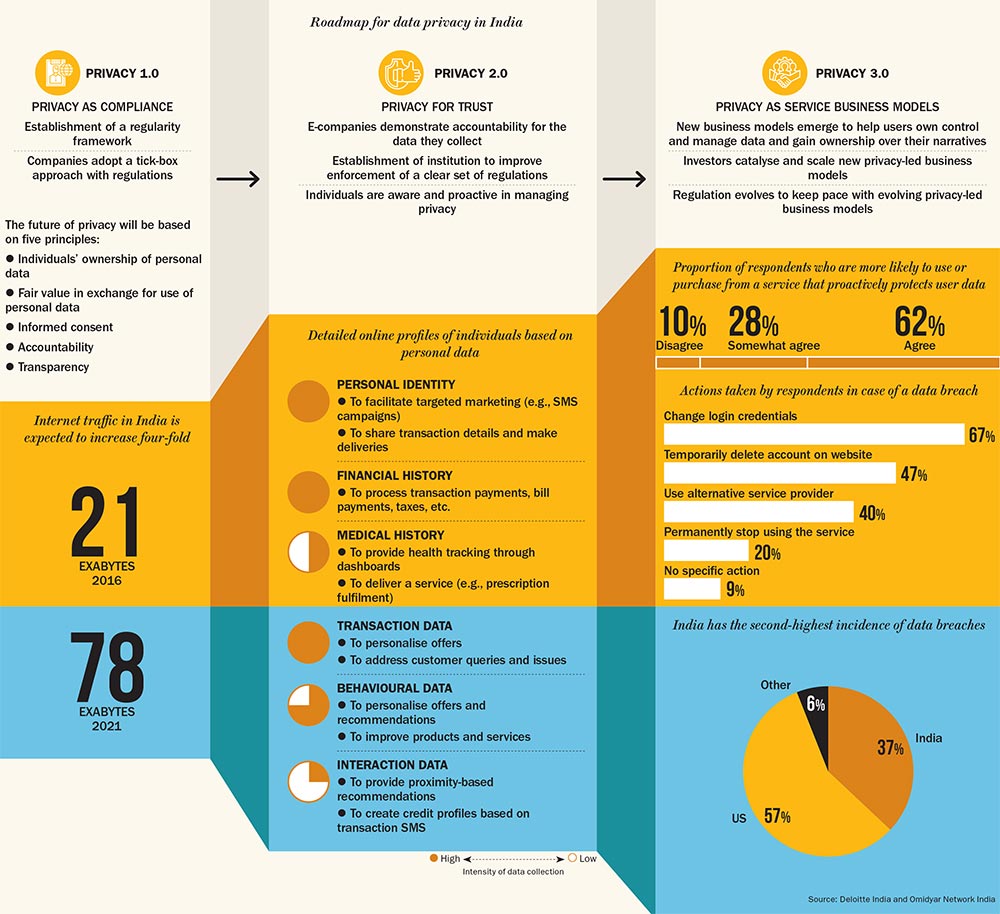What ideally comes with data is privacy, regulatory frameworks and control but what we get is breaches, losses and thefts. A report titled Unlocking The Potential Of India’s Data Economy: Practices, Privacy and Governance, by Deloitte India and Omidyar Network India, tracks India’s data revolution and the elements associated with it. The report states that “internet traffic in India is expected to increase four-fold from 21 exabytes in 2016 (1 exabyte = 1 million terabytes) to an estimated 78 exabytes in 2021”. This mammoth data explosion will include more personal data than ever, with cheap mobile data, penetration of social media and wearables, and government initiatives such as Aadhaar, BHIM and DigiLocker, all aimed at digitising records and putting more data at risk. While digitisation seems to be next step in the right direction, all this has happened without the presence of a robust regulatory framework, which the report calls India being at the “Privacy 1.0” stage where “companies adopt a tick-box approach towards data privacy and regulations”. The report also states that India was home to close to 37% of the world’s data breaches in 2017 and prone to “data leaks, hacking incidents, identity thefts, social media misuse, credit/debit card losses, fake news scandals, and a variety of other data-related incidents”. The good news is that people are becoming more careful. In a survey in the report, 62% of the respondents said that they are more likely to use or purchase from a service that proactively protects user data.
Big data, bigger worry
While data explosion is a reality, our privacy laws are far from comforting

Opening
Opening








